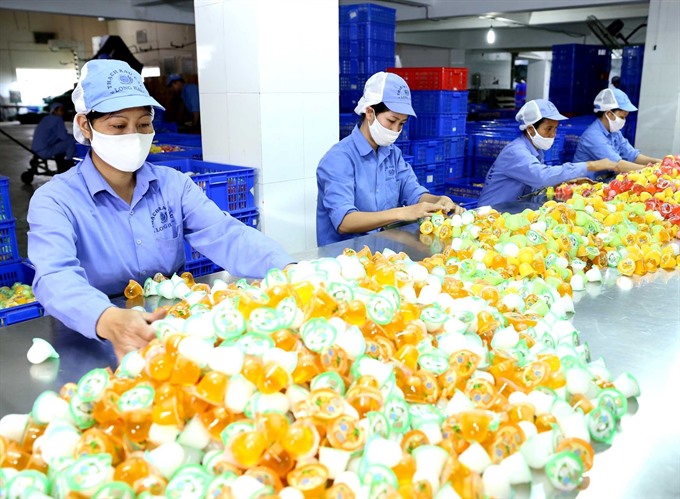Deputy Prime Minister Vuong Dinh Hue said that 2018 will be the peak year for equitisation of State-owned enterprises (SOEs) and State capital divestment.

Deputy Prime Minister Vuong Dinh Hue said that 2018 will be the peak year for equitisation of State-owned enterprises (SOEs) and State capital divestment.
Chairing the meeting of the Steering Committee for Enterprise Innovation and Development on Wednesday, Hue urged relevant ministries to hasten equitisation, adding that the ultimate goal was to enhance governance capacity and efficiency as well as contributions to the country.
Hue said that the institutions and legal frameworks for restructuring SOEs and State capital divestment must continue to be improved.
The foundation of a committee to manage State capital at enterprises must also be sped up. Hue earlier asked the committee to be set up within the first quarter of this year.
Hue said that loss-making SOEs and inefficient projects must be handled thoroughly following market mechanisms and accountability must be clarified.
Hue also asked the listing of equitised SOEs be sped up to improve transparency.
He cited Sabeco as an example of transparency in State capital divestment. The State recently sold 53.59 per cent of Sabeco shares for nearly US$5 billion, although the company was valued at just $3 billion before being listed on the stock exchange.
In the first quarter of this year, four enterprises will be listed on exchanges, including Viet Nam Rubber Corporation, PetroVietnam Oil Corporation, Binh Son Refining and Petrochemical Company and PetroVietnam Power Corporation – the four largest SOEs by capitalisaion among the 69 SOEs which were equitised in 2017.
The evaluation of land in equitisation must be put under tight control to ensure transparency and prevent losses, Hue asked.
Brighter picture
The Report of the Steering Committee for Enterprise Innovation and Development showed that the number of SOEs dropped significantly from more than 6,000 in 2011 to currently 500.
Enterprises wholly owned by the state now operate in only 11 core sectors, such as public service, national defense and security, from 60 sectors in 2017.
By 2020, the number of SOEs is planned to be reduced to just 150.
Nguyen Hong Long, deputy head of the steering committee, said that 69 SOEs had their equitisation plans approved in 2017 with total State capital worth more than VND160 trillion (US$7.02 billion), 6.34 times higher than that of 2016.
Regarding State capital divestment, Long said that the State collected nearly VND139.4 trillion from selling stakes at SOEs worth VND8.9 trillion in book value.
This was an unprecedented result, according to Hue.
Hue said that the picture of business performance was much brighter as the percentage of enterprises reporting profits increased significantly from five years ago.
The committee’s statistics revealed that as of the end of 2017, there were more than 561,000 firms in Viet Nam, 47.3 per cent of which reported profits in 2017, up from 30 per cent in 2017.
More than 83.5 per cent of SOEs reported profits in 2017 while the percentage of profitable foreign direct invested firms was 54.4 per cent and private firms 47 per cent.
However, the results varied across sectors and should be brought in line, Hue said.
Hue also urged the Ministry of Planning and Investment to announce early corporate performance indicators to serve as guidelines for corporate development.
Viet Nam aims to have 1 million firms by 2020, which meant that there would be 180,000 new firms every year on average.
To achieve this goal, Hue asked that efforts to improve the business climate and reduce costs for firms be hastened this year. — VNS





